At Sirens, attendees examine fantasy and other speculative literature through an intersectional feminist lens—and celebrate the remarkable work of women and nonbinary people in this space. And each year, Sirens attendees present dozens of hours of programming related to gender and fantasy literature. Those presenters include readers, authors, scholars, librarians, educators, and publishing professionals—and the range of perspectives they offer and topics they address are equally broad, from reader-driven literary analyses to academic research, classroom lesson plans to craft workshops.
This year, Sirens is offering an essay series to both showcase the brilliance of our community and give those considering attending a look at the sorts of topics, perspectives, and work that they are likely to encounter at Sirens. These essays may be adaptations from previous Sirens presentations, the foundation for future Sirens presentations, or something else altogether. We invite you to take a few moments to read these works—and perhaps engage with gender and fantasy literature in a way you haven’t before.
Today, we welcome an essay from Gillian Chisom!

Lost Girls and Open Doors:
On Susan Pevensie and the Complex Legacy of the Portal Fantasy
By Gillian Chisom
“Each of us has a private Austen,” Karen Joy Fowler wrote in her novel The Jane Austen Book Club. Fowler’s evocative opening line captures something of the complicated afterlife of an author whose books have become many things to many people: the idea of a private Austen suggests not only the ways in which any author’s stories can become a repository for the hopes and fears of a particular reader, but also the speculation about the woman herself that Austen’s own somewhat enigmatic personal life inspires in Fowler’s characters. “Private,” a word with deep roots in traditional ideas about femininity, evokes the related concept of (feminine) secrets: those that Austen herself kept, those that her characters keep or fail to, those that her modern readers keep from themselves and each other. At the same time, the private Austens that Fowler’s book club members cherish become sources both of individual strength and of connection with the group: while none of the characters in The Jane Austen Book Club read exactly the same Austen, they are still able to bring their private versions into the space that they share, with transformative results.
For those of us who grew up reading fantasy literature, especially those of us who grew up reading fantasy literature as girls, I would propose my own version: each of us has a private Susan Pevensie.
While by no means universal, the experience of reading C.S. Lewis’s The Chronicles of Narnia as a child or young adult and feeling distressed or even betrayed by Susan’s fate is one that many of us share. In The Last Battle, we are told that Susan has stopped believing in Narnia, dismissing it as a game she played with her siblings as children, and has shifted her interest to “nylons and lipstick and invitations.” While this brief explanation for Susan’s estrangement from Narnia allows for many possible interpretations, it seems clear enough that Susan falls from grace because she embraces the “wrong” version of adult femininity, though Lewis leaves us with few ideas of what the right version would look like. Given Lewis’s explicitly Christian worldview, one obvious interpretation is that Susan has lost her faith sometime between the end of Prince Caspian and the beginning of The Last Battle: in Narnia, in Aslan, perhaps even in her own memories. As a Christian child and young adult, that was certainly my own interpretation, though I found it difficult to believe that Susan actually forgot about Narnia: it made more sense to me that she simply convinced herself that it hadn’t been real as a means of self-protection. After all, not only had she and her siblings had to return to the real world after growing to adulthood in Narnia, but at the end of their second visit Aslan had told her that she would not be able to return, ever. It made sense to me that her grief might manifest in denial as an attempt to cope with the painful reality of losing an entire world, an entire life, that she and her siblings had claimed for themselves, even though I still believed that her response was misguided.
Other readers of Narnia have offered their own interpretations of Susan’s turn to “nylons and lipstick and invitations.” Most famously, J.K. Rowling commented on Susan’s fate in an interview from 2005: “She’s become irreligious basically because she found sex. I have a problem with that.” Rowling’s comment implies that Lewis’s problem was an inability to see sex and religious devotion as anything other than contradictory, which seems plausible enough. The “nylons and lipstick” line certainly implies sex or at least sexuality, which in Lewis’s world are indistinguishable from adult femininity itself. Indeed, Lewis’s depictions of female characters, taken as a whole, imply that he could only understand adult women as either highly sexualized (and therefore frivolous at best and evil at worst), or sexless and therefore safe; in other words, the virgin/ whore dichotomy is alive and well in Narnia.
However, Susan’s characterization elsewhere in the series implies that she was in danger of losing faith even before she discovered lipstick.
In Prince Caspian, Susan spends much of the book refusing to believe that Lucy has seen Aslan, and has to be reprimanded by the Lion-god himself for “listening to fears.” The 2008 film interprets Susan’s attitude as caution borne of the fear of being yanked back to England again, an interpretation that adds some of the emotional realism that the book lacks. In The Horse and His Boy, which takes place during the adult Pevensies’ reign in Narnia, another character describes Susan as “more like an ordinary grown-up lady” in contrast to Lucy, who goes to war with her brothers while Susan stays home. In Prince Caspian, likewise, we learn that Susan excels at archery but is too gentle to fully enjoy competition.
Susan’s characterization up until The Last Battle suggests that the version of her who grew up in Narnia embraced a more traditional, and therefore acceptable, version of femininity. However, Lewis’s descriptions of the adult Susan also imply that even this purer version of female adulthood is virtuous only up to a point. Susan’s distaste for battle, in particular, contrasts unfavorably with “the Valiant” Lucy’s willingness to go to war for Narnia (even though Lucy’s gender relegates her to a role on the sidelines, healing the wounded); after all, no one wants to be “an ordinary grown-up lady.” Perhaps recognizing this, the 2008 film reinterpreted Susan as a warrior queen, a depiction that in one sense gave her more power, but in another simply reinforced Lewis’s negative attitude towards the idea of a woman choosing not to participate in war.
Susan’s ambivalence towards Narnia upon the Pevensies’ return in Prince Caspian also highlights a larger problem with traditional portal fantasy as a genre: its inability to grapple with the trauma that would likely result to the child protagonists of these stories from the experience of moving between worlds. However, a new generation of fantasy novelists has taken up these problems in their own versions of the portal fantasy, which come to the trope with an awareness of its inherent problems.

Laura Weymouth’s The Light Between Worlds responds directly to Lewis’s work, telling the story of two sisters, Evelyn and Philippa, who travelled from London to a magical land called The Woodlands as children during the Blitz and spent several years there. Evelyn, the younger sister, has sunk into an increasingly deep depression since their return; the book explores in painful detail how the loss of a magical world might affect the mental health of a child who had come to feel at home there. At the beginning of the book, the sisters have had a falling out, and Philippa is in college in the U.S., attempting to build a separate life for herself. When Evelyn disappears, Philippa returns to England to look for her, a task that forces her to reckon with their shared past.
Philippa eventually discovers that Evelyn has indeed found a door back to the Woodlands; in one sense, the story has a happy ending, as Evelyn is able to return to the world where she feels she belongs. However, Evelyn’s return comes at the price of permanent separation from her sister and the rest of their family. While Philippa accepts this separation as the only way forward for both of them, she also recognizes the loss: “My sister stands before me now, rooted in the soil of another world, and she’s always been more than I thought. She’s always been Evelyn of the Woodlands, whose heart called its way home. But I am plain Philippa Hapwell, and my heart belongs to no particular country. It belongs instead to all the people I’ve loved. A good part of it lies here and if I leave it behind, I will never be whole again. I’d be even less, though, if I stayed. More of me rests in the world to which I was born, and it’s time for me, too, to find my way home.” (P. 349)
Weymouth’s book explores the emotional and mental cost of having lived in two worlds, both for the sister who leaves for the magical land and for the sister who stays. The Light Between Worlds makes explicit what was only ever implicit in The Chronicles of Narnia: that choosing one world over another will always come with loss, and that that loss is even more painful when one does not have a choice. Weymouth’s counterpart to Aslan, a stag named Cervus, tells the Hapwell siblings that he will not call them back to the Woodlands, but at the end of the novel reveals that Evelyn has always had the choice to return if she chose, while Evelyn herself confesses that she only waited so long in the hope that she could adjust to being back for her family’s sake (p. 347).
In The Chronicles of Narnia, Aslan tells the Pevensie siblings that “Once a king or queen in Narnia, always a queen or king,” but the promise seems hollow when all of the Pevensies are eventually barred from returning; one can understand why Susan might have wanted to forget Narnia.
Sarah Rees Brennan’s In Other Lands also interrogates the portal fantasy, through the story of a thirteen-year-old named Elliot who’s recruited by a school on the other side of a wall in rural England that separates our world from the magical Borderlands. Brennan and Elliot are both self-aware about the tropes they’re interrogating, with poignant and often hilarious results. Elliot, for instance, is an avowed pacifist who works hard to propose diplomatic solutions to conflicts with various magical creatures, often meeting resistance from the militaristic Borderlands leaders. Brennan’s implied critique of the centrality of war to much of traditional fantasy literature, especially war fought by protagonists who are often children or teens, is incisive and refreshing. In Other Lands also grapples with the theme of choosing one world over the other, and the attendant loss: throughout the book, Elliot wrestles with the decision of whether to return to the Borderlands for good. When he does decide to go back for the last time, he confronts his neglectful father: “Do you know something else? If you’d loved me, I would have stayed,” said Elliot. “If you loved me, I would never have gone.” (P. 340)
Elliot’s confrontation with his father lays bare what traditional portal fantasies like Lewis’s often only hint at: that children would not need to go to magical worlds unless they were missing something in their own. Elliot’s choice to return to the Borderlands does not come without pain, but his only other option is stay in a place where he is unloved and unwanted. The portal world, while often becoming a source of loss in itself, can also function as compensation for children who have already experienced loss in their own world. While masquerading as simple escapism, portal fantasies have always at their core been stories about lost or neglected children looking for a way home. Weymouth and Brennan both highlight this theme by writing protagonists who are older and more self-aware then those of traditional portal fantasies, who understand the weight of their choices and the unfairness of having to make them in the first place.
In the end, Susan Pevensie does not only lose Narnia: in the final chapter of The Last Battle, we discover that the three other Pevensie siblings and their parents have all died in a train crash, and are now in the better, truer version of Narnia, Aslan’s country. What remains unspoken but implied at the end of the book is that Susan remains alive somewhere in the mundane world, alone, as a direct consequence of her choice not to accompany her siblings on their final mission.
My Susan Pevensie is a girl who lost her faith in Aslan but gained faith in herself, faith that allowed her to choose her own survival despite the loss that accompanied that choice.
As I have faced my own painful choices, most poignantly the choice to let go of my Christian identity in pursuit of healing and wholeness, Susan’s story has felt like the perfect metaphor for my own losses. As a child and young adult, I blamed Susan for her loss of faith; now, I blame C.S. Lewis for his failure to imagine a world where she never had to choose.
If the bittersweet heart of the portal fantasy is the loss that comes with choosing between worlds, then I find myself wondering: is it possible for us to imagine a world where our protagonists do not have to choose? In one sense, growing up inevitably involves making choices that come with loss; however, the choices that characters like Susan Pevensie must make in traditional portal fantasies often feel contrived, the product of a rigged system in which an all-powerful authority makes the rules. While books like The Light Between Worlds and In Other Lands acknowledge the pain and trauma of those losses, they still begin from the premise that it cannot be possible to live in both worlds. What would it look like, to tell a story where a girl like Susan Pevensie could move between worlds without sacrificing her full selfhood? What would it mean for us to imagine a version of the portal fantasy where the protagonists are able to find their way home and also remain whole? As portal fantasy continues to evolve, I hope that the next generation of writers will continue to find transformative answers to these questions.
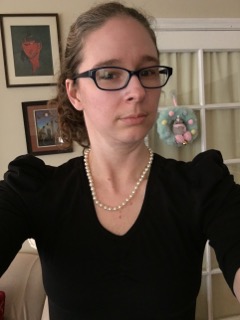
Gillian Chisom is a recovering academic and writer. A lifelong fantasy reader, over the last several years she has wrestled with the genre’s flaws and possibilities and become committed to writing fantastical stories which center queer voices. She was a Lambda Literary Fellow in Young Adult and Genre Fiction in 2013, and her work has appeared in The Toast, Global Comment, and Specs Journal. In her spare time, she likes to make her own clothes.
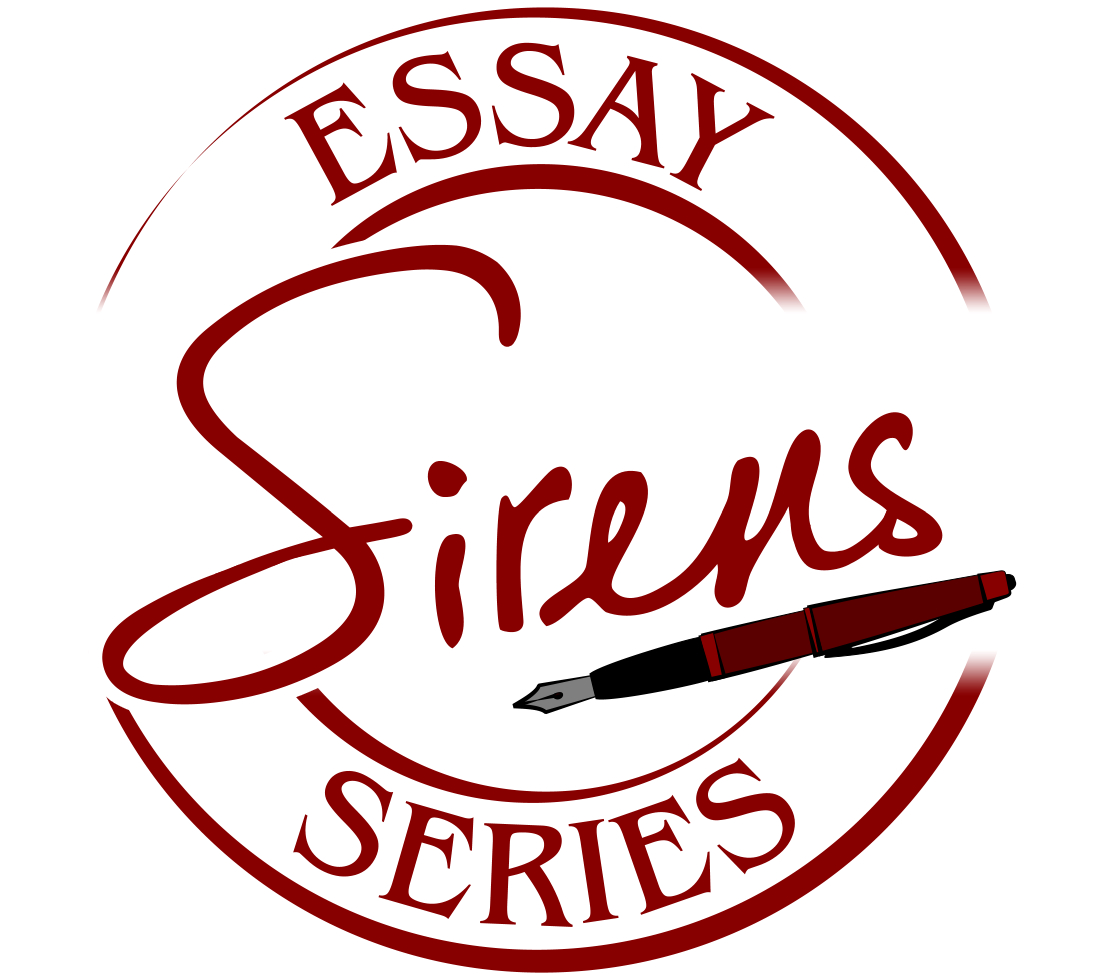




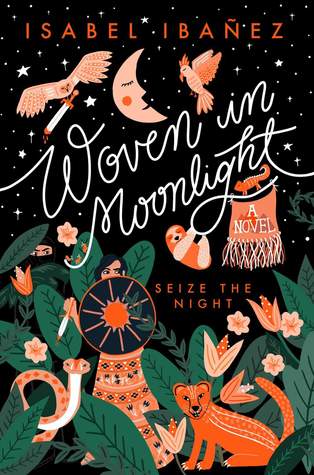
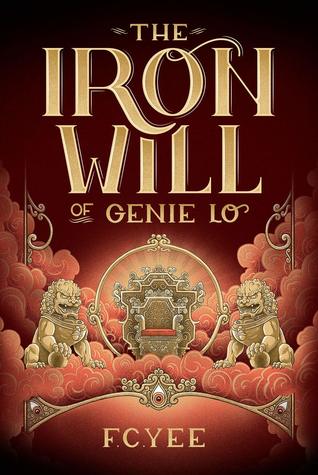
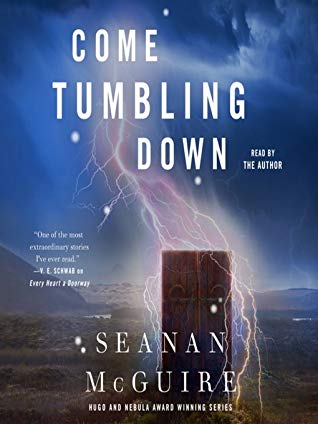





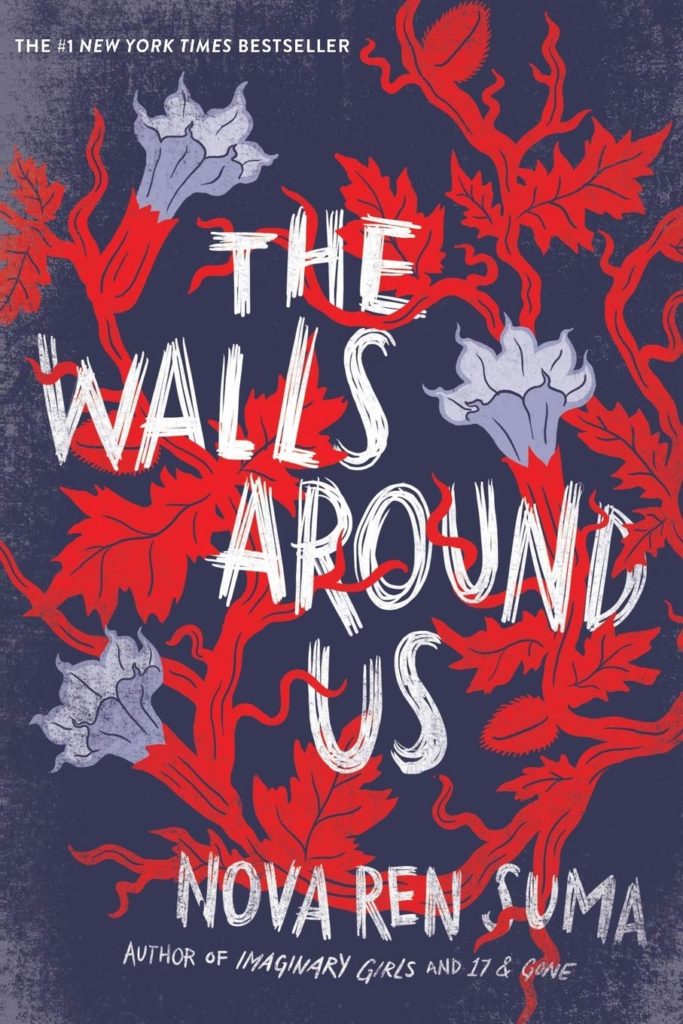
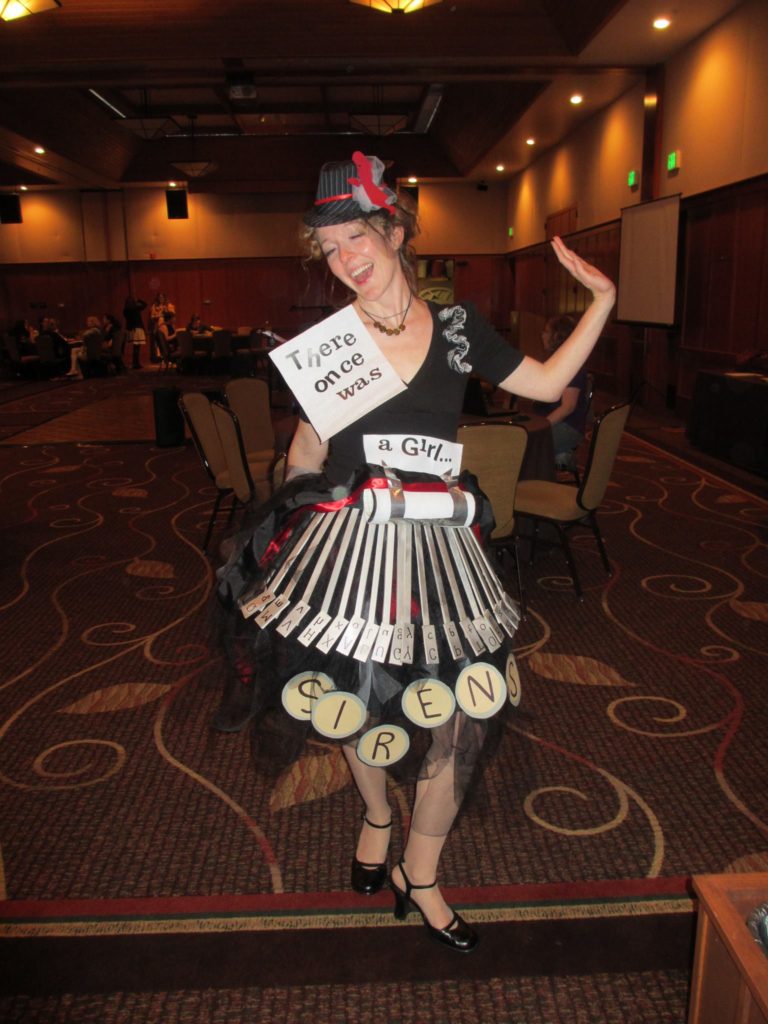

 What can be said about Chernobyl Diaries is its awareness of Chernobyl in the western mass consciousness. Chernobyl hangs like a cloud of “what if” in North America: What if our own nuclear projects go terribly wrong, too? What would the fallout look like? What creatures would it create? Nuclear radiation is a deep source of both anxiety and narrative imagination in North America.
What can be said about Chernobyl Diaries is its awareness of Chernobyl in the western mass consciousness. Chernobyl hangs like a cloud of “what if” in North America: What if our own nuclear projects go terribly wrong, too? What would the fallout look like? What creatures would it create? Nuclear radiation is a deep source of both anxiety and narrative imagination in North America. Fifteen years before Chernobyl Diaries, in 1997, the first edition of Svetlana Alexievich’s Voices from Chernobyl: The Oral History of a Nuclear Disaster was published in Russian. Alexievich was a journalist living in Minsk under the Soviet Regime in Belarus at the time of the accident, and her efforts in recording the aftermath of Chernobyl, amongst other wonderful writings, including her first monograph, The Unwomanly Face of War (1985), earned her the Nobel Prize in Literature in 2015.
Fifteen years before Chernobyl Diaries, in 1997, the first edition of Svetlana Alexievich’s Voices from Chernobyl: The Oral History of a Nuclear Disaster was published in Russian. Alexievich was a journalist living in Minsk under the Soviet Regime in Belarus at the time of the accident, and her efforts in recording the aftermath of Chernobyl, amongst other wonderful writings, including her first monograph, The Unwomanly Face of War (1985), earned her the Nobel Prize in Literature in 2015.  The Chernobyl accident occurred on April 26, 1986, at the Chernobyl nuclear power plant, which lay just outside the town of Pripyat, Ukraine. Alexievich, in the opening pages of her novel, shares a transcript of a monologue given by the wife of one of the first responders at the plant:
The Chernobyl accident occurred on April 26, 1986, at the Chernobyl nuclear power plant, which lay just outside the town of Pripyat, Ukraine. Alexievich, in the opening pages of her novel, shares a transcript of a monologue given by the wife of one of the first responders at the plant: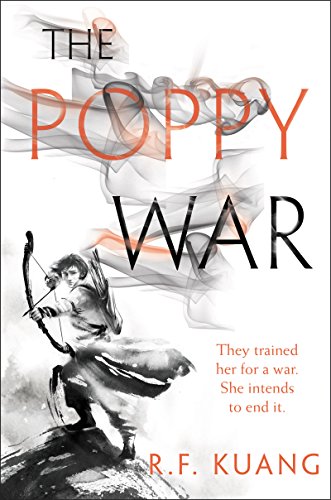 In the Western mass consciousness, Japan has been rendered impotent. Its military, under the post-WWII constitution, can only exist for defensive purposes. Its global exports include franchises like Sanrio (the parent company of the ultra-cute Hello Kitty), anime, video games, and instant noodles. Stereotypes of meek, submissive women and quailing men run amok. But Japan committed some of the worst war crimes ever prosecuted, many of which are continually disputed by Japanese nationalists, who simultaneously wish to erase Imperial Japan’s atrocities and reinstate Japanese supremacy.
In the Western mass consciousness, Japan has been rendered impotent. Its military, under the post-WWII constitution, can only exist for defensive purposes. Its global exports include franchises like Sanrio (the parent company of the ultra-cute Hello Kitty), anime, video games, and instant noodles. Stereotypes of meek, submissive women and quailing men run amok. But Japan committed some of the worst war crimes ever prosecuted, many of which are continually disputed by Japanese nationalists, who simultaneously wish to erase Imperial Japan’s atrocities and reinstate Japanese supremacy.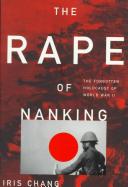 The novel’s mere dedication – “This is for Iris,” referring to the late Iris Chang, author of The Rape of Nanking: The Forgotten Holocaust of World War II, the first monograph published in English that truly exposed the details of the Nanking Massacre to a broader Western audience – implies a closeness to the subject matter, a personal entanglement I can confidently guess Bradley Parker lacked with the Chernobyl incident. It may be argued it is her prerogative to internalize, reshape, and share a version of the Nanking massacre and the less obvious, but nevertheless present and important broader strokes of the Sino-Japanese conflict, including human experimentation and forced prostitution. My love for this book stems, I think, from this: the villains from the Federation of Mugen are human beings. They are not Parker’s mutants, rendered physically monstrous and mindlessly malignant.
The novel’s mere dedication – “This is for Iris,” referring to the late Iris Chang, author of The Rape of Nanking: The Forgotten Holocaust of World War II, the first monograph published in English that truly exposed the details of the Nanking Massacre to a broader Western audience – implies a closeness to the subject matter, a personal entanglement I can confidently guess Bradley Parker lacked with the Chernobyl incident. It may be argued it is her prerogative to internalize, reshape, and share a version of the Nanking massacre and the less obvious, but nevertheless present and important broader strokes of the Sino-Japanese conflict, including human experimentation and forced prostitution. My love for this book stems, I think, from this: the villains from the Federation of Mugen are human beings. They are not Parker’s mutants, rendered physically monstrous and mindlessly malignant.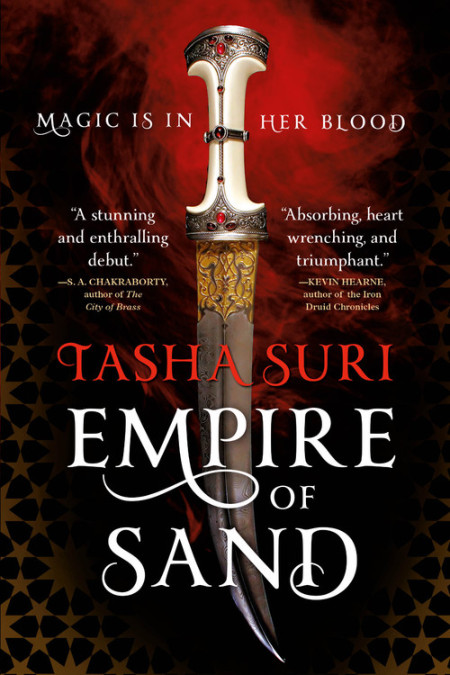
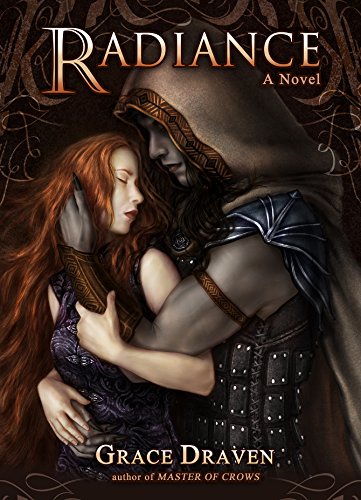
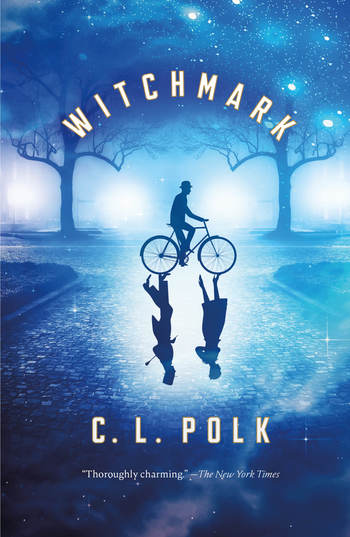
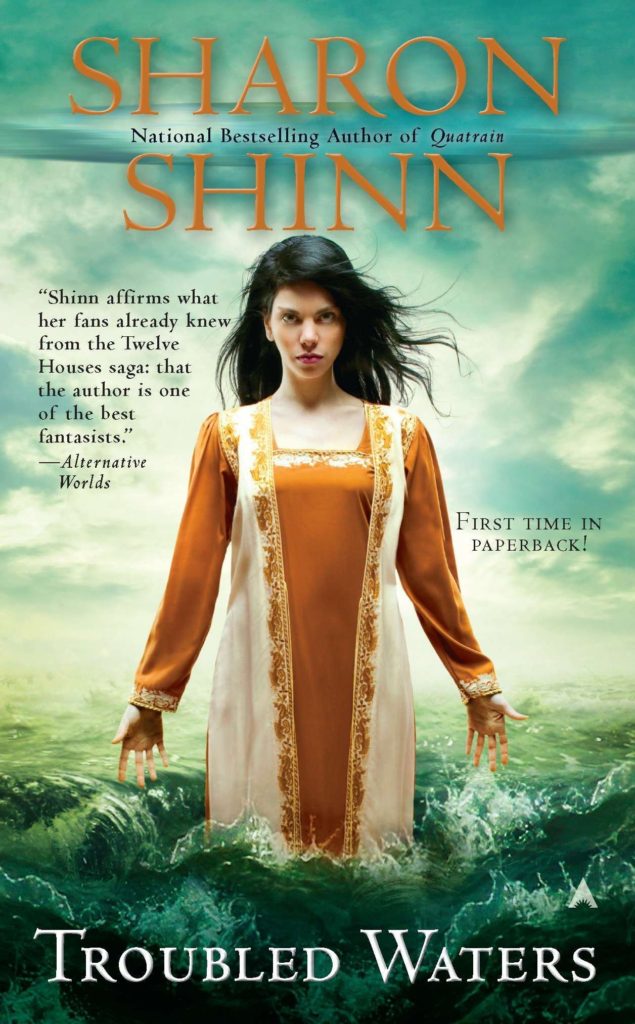
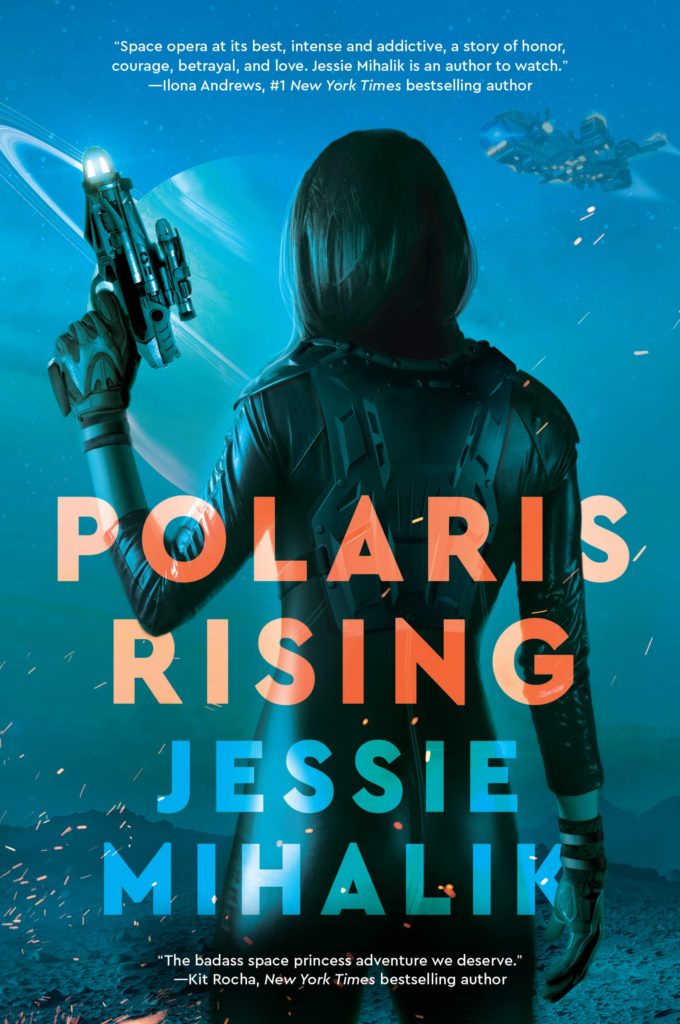



Connect with the Sirens community
Sign up for the Sirens newsletter